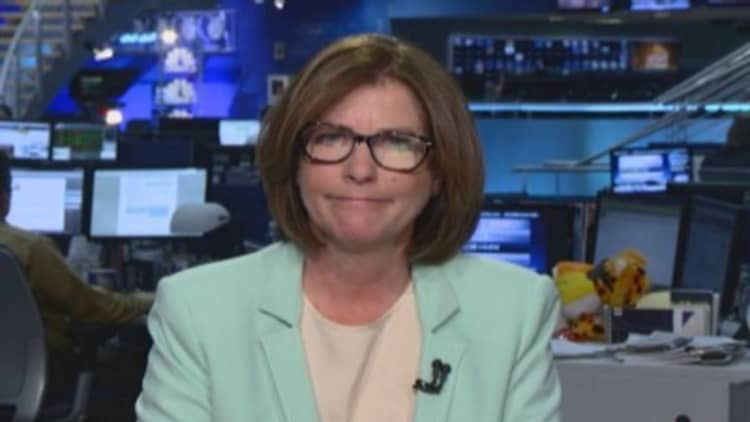Rising gas prices got you down? Maybe you should buy a new car.
The average fuel efficiency of American vehicles has risen significantly over the past seven years, thanks to across-the-board improvements on all vehicles and changing vehicle preferences. That's contributing to lower overall gas usage for passenger vehicles, and blunting the blow when gas prices rise.
"The most recent increases are really substantial," said Michael Sivak, a research professor at the University of Michigan.
Sivak said that the average driver of a new vehicle spends about $28 less per month for gas than a new-car buyer just three years ago, based on his analysis of average miles driven, fuel efficiency and gas prices.
Americans who buy a new car are saving money on gas whether they buy a new version of the same car or opt for a more fuel-efficient vehicle, he said.
Read MoreNew cars mean bigger headaches for drivers: Study
"There has been an improvement for any given model vehicle," he said.
Experts say it's unlikely that most people are choosing to spend tens of thousands of dollars on a new car just so save tens of dollars on gas each month, although it is a nice perk.
Read More How to cut back on gas prices this summer
Alexander Edwards, president of the consulting firm Strategic Vision, said his company's research has shown that fuel economy is a consideration when buying a new car, but consumers are more likely to say that reliability, durability, value for the money and even seating comfort are extremely important to their decision-making.
He thinks that in recent years, Americans have started to realize that instead of buying a big SUV, they could spend significantly less on a sedan that also offered the things many SUVs do: Seating for five with room left over for groceries and sports equipment.
"They weren't getting angry one to two times a week when they went to the gas station to fill up," Edwards said. "What was really motivating them ... is that they didn't want to pay $35,000 for an SUV when a $25,000 (vehicle) would fit all their needs."
Then when they got that smaller vehicle, Edwards said, their decision was reinforced every time they went to the gas pump and saw a smaller bill.
Sivak's research has shown that there was virtually no improvement in the overall fuel economy of American passenger vehicles from the mid-1920s to the mid-1970s, and then a pattern of modest improvements began.

The change has been especially dramatic since 2007. Sivak said the average fuel economy of new cars, light trucks and SUVs purchased has gone from 20.1 mpg in October 2007 to 25.6 mpg this past May.
That's based on the window sticker ratings, but Sivak said that even if the number on the sticker doesn't exactly match what a driver gets on the road, the pattern of improvement is still accurate and substantial.
Americans tend to be preoccupied with any slight fluctuation in gas prices. But Edwards, whose clients include many major automakers, doesn't think that carmakers have increased fuel efficiency in recent years because of consumer preferences. Instead, he thinks they have been motivated by tough new government standards.
"It is an artificially created issue," he said. "The (automakers) would much rather focus on performance, styling and capability, because that's what customers are going to base their decisions on."
Still, Sivak notes that the improvements have come as Americans' driving preferences appear to be changing, and not just because of the recent weak economy.
Read MoreNew EPA rules won't hurt consumer: Public Citizen
His research has found that the amount of miles each person drives and the amount of fuel each person consumes peaked in 2004, several years before the Great Recession began in late 2007.
"We consuming less fuel because of those two factors: We are driving less per person, but more importantly we are driving more fuel efficient vehicles," he said.
The economy may have played a role in those declines, but Sivak also said there appears to be a shift, especially in Americans under age 40, in how much they drive or want to drive.
"The recession has contributed to the decline, but it has not been the trigger and it has not been the main factor," he said.
—By CNBC's Allison Linn


